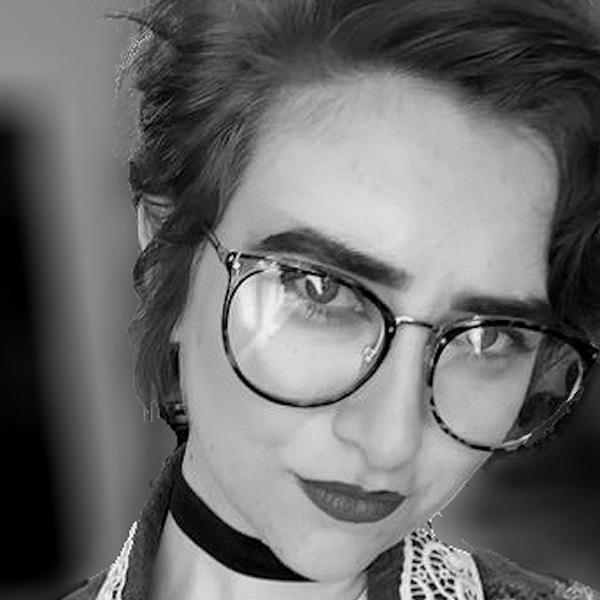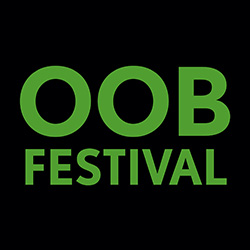
14 Jul F30 Countdown – Alex Flanigan
With the festival twenty-three days away, let’t get to know a little more about Alex Flanigan and her play Singularity.
Born and raised in the West Virginia mountains, Alex is a self-described Jack-of-all-trades whose only professional constant is a need for creativity and love of a great story. She grew up in theatre, performing from the age of 6 and studying scripts in her spare moments offstage while her mother music directed shows, and became somewhat notorious for attending rehearsals and memorizing scenes she was not directly involved in. She credits theatre with bringing her out of her shell and a household full of books for pushing her back into it, and an obsession with the written word for driving her exploratory and inquisitive writing style. Though she hasn’t acted onstage in years, she can frequently be found in pit orchestras and theatre classrooms, always seeking new and exciting perspectives.
When did you start writing plays? If you had a moment where you realized you wanted to write, what was it?
I wrote my first “book” before I could even write fluently, using kitten stickers and cardboard to construct a compelling narrative that, truth be told, ages pretty well for the work of a 4 year old. I’ve been writing all my life, and I’ve been involved in theatre all my life, but for some reason I never married the two in my mind until college, where I was fortunate enough to be exposed to a lot of colleagues who were incredibly self-driven in generating and producing student-written works. I attended several of these forums and watched a lot of better playwrights than myself at work before I had a “why not?” glimmer of inspiration and decided to go for it.
How did you come to write your OOB play? Was there a particular inspiration behind its creation? How has it developed?
Singularity is actually my first fully-realized play. It comes from a lot of different inspirations, a lot of factors that somehow unified into a weirdly poetic concept in my mind. I was on a competitive robotics team in high school and spent a lot of time around people who had lengthy discussions about the robot singularity and what it meant to be alive at a time where artificial intelligence was developing so rapidly. Then in college, I sort of checked my scientific inclinations at the door and was instead surrounded by all these artistic, socially-minded people who were having these profound conversations about identity and environment and what it means to be human. Everything comes full circle eventually, and I was in the car with my mother one day having a discussion about technology when suddenly Charlie’s story sprang into my mind, and I realized it was a decisively relevant narrative–not just for me, as a college student figuring out where I fit in this sort of arbitrary system of higher learning, but for these people I was meeting from these drastically different backgrounds and the struggles I was watching them face as we all tried to come into our own. I could never hope to speak to the strength, resilience, and experience of my friends of color and othered identities, but Singularity gave me a vehicle to explore and honor their fight, and to ask myself a lot of questions about what I still wasn’t seeing in my environment–what I still had to learn from the people around me. I’ve been very fortunate to start a lot of conversations with this piece, and to re-examine my own thought process in writing it. The text hasn’t changed much since my first draft, but my perspective on it certainly has.
What are 5 words that describe who you are as a playwright?
Clever, keen, discerning, inquisitive, candid.
What/who are some of the major influences on your writing?
Gene Roddenberry. Is that weird? I’m obsessed with sci-fi’s relentless poeticism on the human condition. Thornton Wilder and Arthur Miller for their incisive honesty. I would like very much to think that I’ve been profoundly influenced by Stephen Sondheim, whose insightful lyricism and mastery of nuance are, for me, the pinnacle of theatrical writing.
What’s one fact someone would never guess about you?
I was knighted when I was in 8th grade! By the governor of West Virginia. It was part of an induction into the Order of The Golden Horseshoe, which is an honor awarded to exceptional students of history, so it wasn’t any particularly valorous act. But hey, for what it’s worth, there was an actual sword involved.
What are some of your favorite plays?
Rhinoceros by Ionesco, The Curious Incident of the Dog in the Night Time by Simon Stephens, The Crucible by Arthur Miller, Twelve Angry Men by Reginald Rose. Though they’re technically *musicals,* I could talk forever about Into the Woods and Side Show.
Any new projects you’re working on or shameless plugs?
I run a podcast called The Cryptid Keeper with my best friend Addison where we talk about folklore and arguably mythological creatures. It’s a lot of fun, and you can find it on basically any podcasting platform! Aside from that, I’m always working on at least 6 different ideas at any given moment, but none of them are ready to discuss just yet.
Her play Singularity will be performed on August 8th at 6:30pm. We meet android named Charlie, designed to attain self-awareness, who engages in a battle of wits with the programmer–and the system–that designed them to do so. But when Charlie displays an unexpected degree of success, it becomes clear that they have very different ideas of their own roles in the rapidly shifting balance of power.



